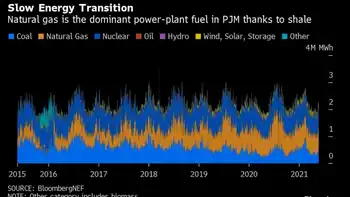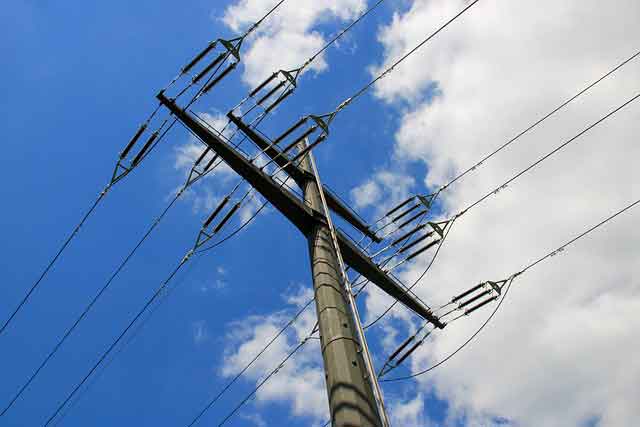N. Korea Will Block U.S. From Nuke Sites
SEOUL, South Korea -- - North Korea angrily reacted recently to a U.S.-led move to suspend construction of two nuclear power plants in the impoverished country, saying it will seize all equipment and technical data for the $4.6 billion project.
Pyongyang, however, did not revoke its earlier promise to return to six-nation talks aimed at resolving a standoff over its nuclear weapons program -- a scenario some U.S. allies had feared when they agreed to halt work on the North Korean reactor project.
The Korean Peninsula Energy Development Organization, a U.S.-led consortium based in New York, has been building two light-water reactors in Kumho, a remote village on North Korea's northeast coast, as part of a 1994 ``agreed framework'' deal between Washington and Pyongyang.
Halting the project looked inevitable by Thursday, however, as all four members of KEDO's executive board favored suspending the Kumho project for at least one year.
Washington led the initiative, suggesting that KEDO kill its project because North Korea has flouted the 1994 accord by running a secret nuclear weapons program.
The United States and KEDO ``are obliged to make full compensations to the DPRK under relevant articles of the light-water reactor agreement as Washington has caused such huge losses to the DPRK by refusing to fulfill its commitments under the agreed framework,'' an unidentified spokesman of North Korea's Foreign Ministry told KCNA, Pyongyang's official news agency.
DPRK stands for the Democratic People's Republic of Korea, the North's official name.
``The DPRK will hold them accountable for this to the last. It will never allow them to take out all the equipment, facilities, materials and technical documents now in Kumho area for the light-water reactor construction till this issue is settled,'' the spokesman said.
KEDO's executive committee met earlier this week and discussed the fate of the rector project. They said they would make a final announcement before Nov. 21.
The State Department said it sees ``no future'' for the project. The project's three other members -- South Korea, Japan and the European Union -- favor suspending the project for one year, instead of nixing it completely. They want to use the prospect of reviving the project to persuade Pyongyang to abandon its nuclear weapons ambitions.
Under a 1994 deal, North Korea promised to freeze and eventually dismantle its suspected nuclear weapons development. But the deal went sour in October 2002 when U.S. officials said North Korea admitted running a secret weapons program against the weapons-control agreement.
Washington and its allies later cut off 147 million gallons of annual free oil shipments -- also part of the 1994 deal. Pyongyang retaliated by expelling U.N. nuclear monitors. Last month, it said it was building more atomic bombs besides one or two bombs it already is believed to posses.
Pyongyang says that the United States also has reneged on the 1994 deal. It cites Washington's failure to keep its promise to build one of the two light-water reactors by 2003, and its refusal to make compensations for ``tremendous'' economic losses caused by the delays.
Recently, the North Korean spokesman said KEDO's move to suspend the reactor project was not surprising because it has expected it.
``What matters is why Washington is so getting on the nerves of the DPRK at a time when the resumption of the six-party talks is high on the agenda,'' the North Korean spokesman said.
North Korea now has ``a reason strong enough to take the most appropriate measure when necessary,'' the spokesman said without elaborating.
Representatives of the United States, the two Koreas, China, Japan and Russia met in August in Beijing to discuss ending the nuclear crisis. But the meeting ended without agreement on a next round. Last week, North Korea agreed ``in principle'' to return to the multinational talks.
Chinese Vice Foreign Minister Wang Yi, Beijing's point man on North Korea, traveled to Washington recently to prepare for a new round of six-nation talks. China hopes to arrange and host the fresh round of talks, perhaps within weeks.
Related News

Electricity Payouts on Biggest U.S. Grid Fall 64 Per Cent in Auction
NEW YORK - Power-plant owners serving the biggest U.S. grid will be paid 64% less next year for being on standby to keep the lights on from New Jersey to Illinois.
Suppliers to PJM Interconnection LLC’s grid, which serves more than 65 million people, will get $50 a megawatt-day to provide capacity for the the year starting June 2022, according to the results of an auction released Wednesday. That’s down sharply from $140 in the previous auction, held in 2018. Analysts had expected the price would fall to about $85.
“Renewables, nuclear and new natural gas generators saw the greatest increases in…




